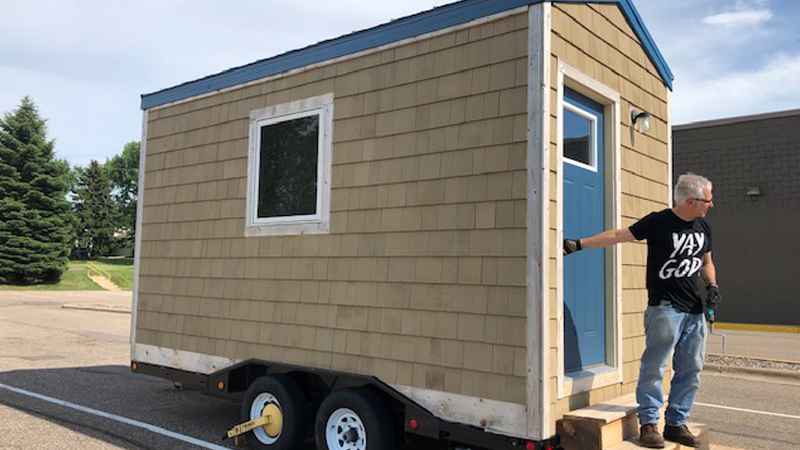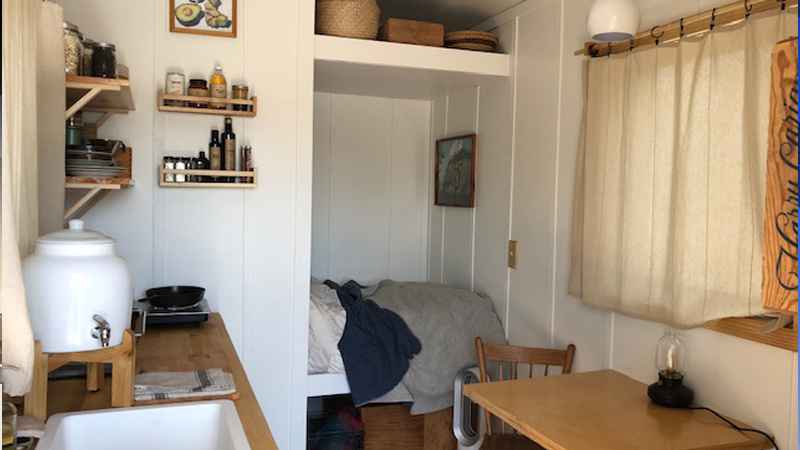KSTP- Board by board, sheet by sheet, Jeff Linert and a group of volunteer friends are collecting plywood to make something old new again.
“It was a connection from God for us to get this wood,” he said. “We want to build a house out of your wood. Out of your ‘riot wood,’ we’ve called it ‘riot wood.’”
Linert, with the homeless advocacy group Settled is using a warehouse at Woodland Hills Church in St. Paul as a storage space for plywood used for protection during the riots following the death of George Floyd.
“It’s a beautiful idea: something put up in a state of fear to try to protect a business that’s going to be used to calm fears,” he said. “To give somebody a safe place to be.”


The plywood supply appears almost endless. Although some are coming down, hundreds of the wooden sheets still cover homes and businesses in the Twin Cities.
“He was saying something about if he could have our plywood,” said John Shepperd, a St. Paul insurance salesman. “He said it was for building some tiny houses, in conjunction with a couple of churches.”
Shepperd says Settled stopped by about a week ago and offered to haul away the plywood covering his office windows.
“It needed to come down, and they were willing to take it down,” he said. “It was a great cause, I thought.”
The group built its first tiny home last September; the prototype sits in the Woodland Hills Church parking lot.
The homes are compact, about 10 feet by 20 feet, and they include a bed, a toilet area, a cozy kitchen table and a kitchenette complete with a hotplate.
“Working with faith communities across the Twin Cities, we plan to build a lot of homes — hundreds of homes, eventually,” Linert said. “Trying persistently to create housing for the chronically homeless. People that have been homeless for more than a year.”
The 15 boards from Shepperd’s office are enough to make half of a tiny house, about the size of a fish house on wheels.
“If it helps people get out of the bottom rung of being homeless, then it’s tough to get out of there,” Shepperd said. “If it provides a way out for some of these people, I think it’s great.”
Each house takes a couple of weeks to build with the help of volunteer carpenters, plumbers, and electricians. The cost is around $20,000 apiece.
But Linert says it’s not just about finding a place to live.
“What we do at Settled, it’s not just the house,” he said. “It is a house and a bunch of friends to support you. A house and friends to tell you are valued.”
“It makes me feel good, but it also makes me want to do more,” Shepperd added. “I’m feeling better about it every day. Glad we were able to help.”
Through private and faith community donations, Settled has already raised one-third of the money needed for the next tiny home.
A beginning. And, eventually, a home for someone in need.
“It’s a complicated process. We’re getting there. It’s going to take a while to actually get going,” Linert said. “It’s a large, safe place to stay, basically what we’re after.”



